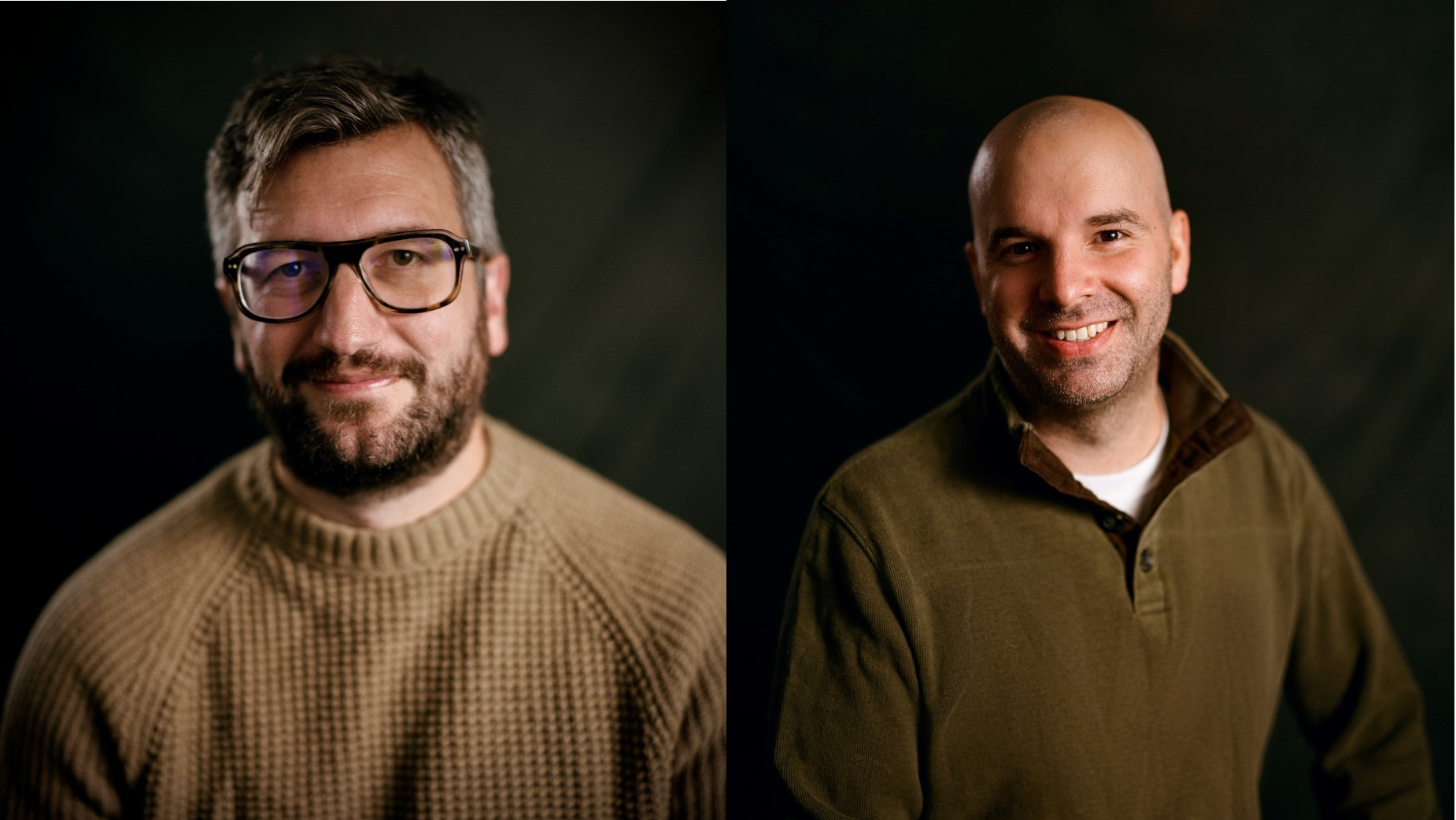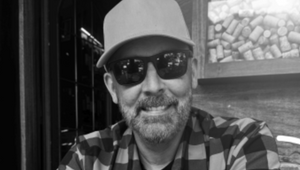
The Directors: Casey Lock and Ross Zuchowski

From corn stalks to skyscrapers, crashing waves to traffic jams, the lobsterman and corn fed hoosier. Ross and Casey are small town kids. First meeting up in the dorms of Chicago, many laughs, fake IDs, and wandering nights later, they formed a directing duo. They bring humour and heart into each story. Which means no matter the job, they come equipped with a detailed process, passion and desire to create something unique. Though Casey may prefer wine and Ross bourbon, they look forward to toasting your favourite libation with you as they wrap up your latest project.
Name: Casey Lock & Ross Zuchowski
Location: Chicago, IL
LBB> What elements of a script sets one apart from the other and what sort of scripts get you excited to shoot them?
Casey Lock and Ross Zuchowski> One element of a script that helps it stand out is when the voice feels honest to the brand it’s representing. There are occasions in advertising where scripts can become a little stale and it’s refreshing to read something that is engaging it’s audience in an honest way.
LBB> How do you approach creating a treatment for a spot?
Casey and Ross> When we’re diving into a treatment it’s important to find something that resonates with us personally. That is the starting point. Why do we care about this piece and how can we show that on screen? Once we answer that question the approach becomes much more organic and helps us inform the rest of our decisions. Once we are in the process we like to have fun with it, presenting things in a new way that relates to the subject matter but stays entertaining and fresh.
LBB> If the script is for a brand that you're not familiar with/ don’t have a big affinity with or a market you're new to, how important is it for you to do research and understand that strategic and contextual side of the ad? If it’s important to you, how do you do it?
Casey and Ross> Putting in the work upfront is always something that we relish in whether or not we’re familiar with the brand there is often something new to discover that may be a lightbulb moment. Research becomes key in helping us understand if we want to lean into what the brand has established over the years or if we’re looking to present the brand in a different way to try something new. The less familiar we are the more exciting this process becomes, discovery always leads to exciting creative ideas.
For you, what is the most important working relationship for a director to have with another person in making an ad? And why?
Casey and Ross> Trusted collaborators are extremely valuable and are often the difference between having a successful spot or not. Agency creatives have often spent months on the creative you are about to dive into and more often than not have valuable insight into the brand and can help inform your decisions. As director’s we are stewards of that initial idea, our goal is to bring fresh eyes and maximise their vision. We always desire an open relationship through the entire process where we can discuss new ideas, and challenge each other in a productive manner that brings the best out of their creative ideas.
LBB> What type of work are you most passionate about - is there a particular genre or subject matter or style you are most drawn to?
Casey and Ross> We are most attracted to characters and environments that feel natural. Our shared thinking is always that honesty is the best way to connect with viewers. This can result in a wide array of emotions, but most important is that the core emotional journey is grounded and real. Visually we love to make pieces with a lot of movement and creativity. With commercial production we are given a very short amount of time to tell a story, injecting our frames with a sense of constant discovery helps add energy and guide the viewer.
LBB> What misconception about you or your work do you most often encounter and why is it wrong?
Casey and Ross> We do not take a designated role as ‘Casey does this’ and ‘Ross does that’. We find that counterproductive to what we are trying to achieve. We work together because we both have similar interests and we constantly inform each other and challenge each other on what is best for the project. The other misconception that we try to actively work against is a stressful on-set environment. We are very detail oriented through pre-production and that allows for a smooth transition into production. Once cameras are rolling is when everyone should be the most relaxed.
LBB> Have you ever worked with a cost consultant and if so how have your experiences been?
Casey and Ross> In any partnership on a project if both parties are looking at achieving a positive outcome the results can be fruitful. Our experience has been productive in creating an environment where the budgets can be maintained but not at the cost of the creative. In our process we were transparent about the needs of the shoot and what we could do without and they were firm on the budget guidelines set forth from there it was a little dance to get things in order but the net result is a win everyone can feel good about.
LBB> Casey and Ross> What’s the craziest problem you’ve come across in the course of a production – and how did you solve it?
Casey and Ross> We recently had a job where we were shipped all of the wrong products the night before. The product was the right sizing but we needed to reskin all of the packaging to make it look correct. This is when having the right key crew in place shows in spades. We were able to consult with our art director and build and print all the outside packaging for the product the night before. It led to a late night but it also meant that we were not spending tens of thousands of dollars in VFX replacement which would have not looked as good.
LBB> How do you strike the balance between being open/collaborative with the agency and brand client while also protecting the idea?
Casey and Ross> If you’ve been able to establish a shared trust during the project then it becomes an easy conversation to bring it back to the core of the idea and say does this idea help enhance the core idea of the story or does it come at a cost?
LBB> What are your thoughts on opening up the production world to a more diverse pool of talent? Are you open to mentoring and apprenticeships on set?
Casey and Ross> I would love to offer any help to someone who is interested in mentorship. I spent a lot of time wishing I myself had a mentor. As for diversity in production, the more points of view on-set the better position we are all in to succeed; if that makes the work more competitive, it only means that everyone's vision gets better.
LBB> How do you feel the pandemic is going to influence the way you work into the longer term? Have you picked up new habits that you feel will stick around for a long time?
Casey and Ross> One big take away is the way in which folks communicate now. Video calls are ubiquitous and can be used to engage with folks on a more personal level. This doesn’t mean it replaces the need to be on set on the day but it does allow to engage with folks a bit sooner in the person and build that relationship earlier.
LBB> Your work is now presented in so many different formats - to what extent do you keep each in mind while you're working (and, equally, to what degree is it possible to do so)?
Casey and Ross> We spend a fair amount of time thinking through the various deliverables for any project as each output has it’s own set of parameters that we need to consider. We frame differently to compensate for re-crops and in certain cases we may block performances differently to make sure the piece can work across all platforms.
LBB> What’s your relationship with new technology and, if at all, how do you incorporate future-facing tech into your work (e.g. virtual production, interactive storytelling, AI/data-driven visuals etc)?
Casey and Ross> We use tech as a function of storytelling. Tech that is often not talked about are the things that excite us the most. New cameras that function in low-light, new lights that can be used in ways that minimize their intrusion in the scene. We are both very interested in virtual production if it serves a purpose. It feels like the next step past work on a green screen. Earlier this year our company worked on a piece that replaced a character with all AI generated animations, that was a really fun time.
LBB> Which pieces of work do you feel really show off what you do best – and why?
Casey and Ross> Sierra - We really like the creativity and the visual language and performances of this piece.
Wilson - We have always been striving to add camera movement and force the perspective of the viewer into the eyes of the athlete. With this piece we wanted to energize what is seen as a more casual sport like tennis and show the incredible athleticism and intense focus of high level athletes.
AutoZone - With this piece we were able to bring the viewer into the shop and quickly establish how fast and efficient the brand is in changing out auto parts and getting people back on the road.
Samsung - We love these pieces, they bring us to new locations all over the world and we get the opportunity to meet people doing great things in their communities. We also love the problem solving component, when we are shooting in locations with less access we need to quickly build new teams and piece together our gear list with the same expectations of quality.












